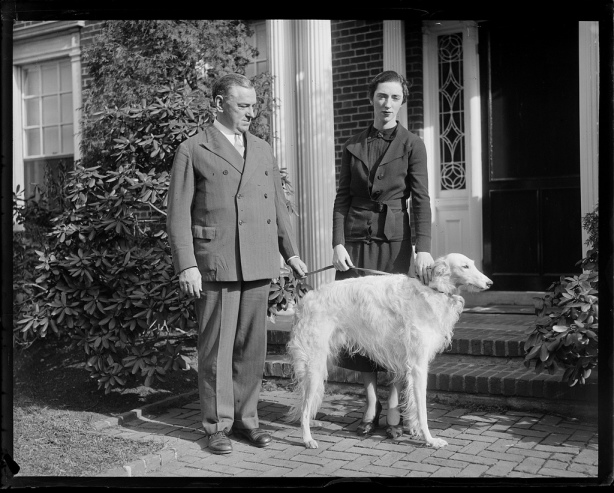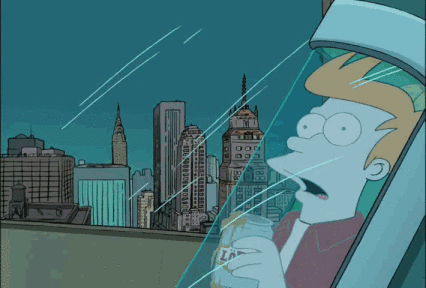Boston DSA's Twitter presence is complaining about what happened to Boston's West End. With good reason! Urban renewal in the West End pushed people out of their homes, completely destroying a vibrant, diverse community, in order to make room for some shitty high-rises for rich people. The destruction of the West End was a colossal mistake.
But to whoever's controlling Boston DSA's Twitter account, the main takeaway is "fuck developers." This is really disappointing.
The West End was destroyed by urban elites through political institutions -- the city, the Boston Housing Authority, and the Boston Redevelopment Authority -- with money that had been provided for "slum clearance" by the federal government. Its destruction has incredibly valuable lessons for us about urban governance under capitalism and left-wing city politics. But only if we care enough to go one step beyond "fuck developers."
What happened?
Here's a history of the West End's redevelopment, ripped from the pages of Wikipedia.
First, Boston politics. James Curley was a political boss in Boston from 1914 through 1950. During that time, he served four terms as Mayor of Boston, one term as Governor of Massachusetts, and two terms in the U.S. House of Representatives. An honest-to-goodness left-wing populist in the Depression-era Huey Long mold, he expanded hospitals and the public transit system; improved roads and bridges; built schools, parks, and libraries; and was generally loathed by the WASP establishment and loved by his working-class Irish constituency. And also in the Huey Long mold, he was dogged by corruption scandals throughout his career. He even served 5 months in prison during his final term in office after being convicted of mail fraud, until his sentence was commuted by President Truman. 1

Dogspotting with James Curley. Creative Commons, from the Boston Public Library, taken by Leslie Jones. Available here.
In 1949, John Hynes defeated Curley with the backing of Boston's business community, who hated Curley and his high property tax assessments. It was time for the downtown establishment to bite back.
The other major part of the political background was Truman's Housing Act of 1949. This law gave cities broad powers to remake "slums," along with the money to acquire property, raze, and redevelop.
So Hynes used federal funds to destroy the West End. In 1958, the Boston Housing Authority evicted thousands of families. They razed the neighborhood to the ground and replaced it with high-rise apartments, shopping centers, and parking lots. Few residents were able to return. Those who were displaced often faced higher rents, substandard housing, or further removal from the city center. Part of the city's justification for labeling of the West End a slum was due to the city's own actions: it stopped collecting trash in the West End prior to redevelopment, in order to make it seem more slummy. Neat!
OK what did we learn?
First of all, it wasn't really "developers" who destroyed the West End. It was the rich. It was the city and the federal government. It was politics! Curley's constituency was the working-class neighborhoods of Boston, and Hynes chased them out with wrecking cranes. Either this was purely for political advantage, or he and the rest of the Boston establishment simply preferred a city of the rich to a city for everyone. Either way, it's class warfare.
Urban renewal was not limited to Boston, of course. Cities across the U.S. used Truman's "Fair Deal" housing laws to boot the poor and wreck their neighborhoods. This is perhaps a surprising development. This was essentially the height of social democracy in the U.S. -- the federal government was spending millions on direct housing provision -- but it was extremely shitty for the poor and for U.S. cities. Incumbent interests will co-opt social spending as best they can.
So that's lesson one: politics matter. Elections matter. Constituencies matter. What would Curley, or someone like him, have spent millions on in Boston?
Next: capitalism.
Socialists are typically quite good at keeping an eye on capitalists. In this case, the federal government is acting as capitalist -- it underwrote destruction and development in the West End and provided low-cost mortgages to all the new owners. This is typical for urban development. As David Harvey notes:
Urbanization, I have long argued, has been a key means for the absorption of capital and labor surpluses throughout capitalism's history. It has a very particular function in the dynamics of capital accumulation because of the long working periods and turnover times and the long lifetimes of most investments in the built environment... But precisely because all this activity -- which, by the way, is a hugely important arena for value and surplus value production -- is so long-term, it cals for some combination of finance capital and state engagements as absolutely fundamental to its functioning. This activity is clearly speculative.
This is from Rebel Cities, but from what I can tell it's Harvey's favorite thing to write about (he makes this point ad nauseam in The Enigma of Capital). From Haussmann's Paris to China's construction boom today, the problem of having too much capital is solved through large state-funded urbanization projects. It has to be the state, since investments in the built environment take a long time to mature and are extremely expensive. Pouring money into rebuilding the city fills a short-term need by absorbing lots of capital and labor (see: the Big Dig), and allows the state to make a long-term investment in a cool exotic asset, the city. The city is a particularly interesting asset to Harvey because it's literally the site where capitalism happens.
The state made a long-term speculative play in Boston, which was extremely bad for the working-class residents of the West End because of who had power -- in Boston and also in the federal government when the Housing Act of 1949 was crafted. I'm not sure how we can break the wheel of capital accumulation and crisis that David Harvey describes (or if we can, or whether we should if we can). But if we're going to have massive state investments in urbanization, it would be extremely cool if those investments were used to help people, through direct social spending on housing, healthcare, education, and transportation. 2 We get that outcome by winning political power, like James Curley did.
This is not to say that there will definitely be a future federal investment in Boston on the scale of the West End redevelopment, or anything like that. Harvey is noting a general tendency -- or a structural feature embedded in capitalism -- of governments to invest in the built environment at varying scales, from High Line-style urban parks to Chinese high-speed rail. That investment should serve regular people.
Of course, the other capitalists still making money off the West End are the people who eventually paid off those federal mortgages. Piketty has shown that capital growth from rising land prices is driving economic inequality right now. And urban landowners promote strict zoning laws to preclude new housing, protecting the scarcity and thus the value of their investment. It's got nothing to do with greedy developers and everything to do with greedy landowners.
I hope I've made this clear: labeling developers the main villains in the West End story isn't just bad history. It's bad capitalist critique! It's a poor, one-dimensional understanding of urban dynamics under capitalism. Developers aren't capitalists, they're just the people who get paid to knock stuff down and put other stuff up. Developers are one small piece of the system of urban development, but it's an overriding tendancy on the left to blame them for everything.
In Cambridge and Boston, Our Revolution and DSA had a number of questions on their city council questionnaires relating to whether city council members would accept money from developers or real-estate lawyers. And in meetings I've attended, the power of developers is a major concern folks have. But never mind landlords and property owners! As Davi da Silva pointed out over and over on Twitter, there's an enormous conflict of interest in the fact that most city council candidates own homes. If you own a home in Cambridge, you have a million-dollar investment in keeping housing scarce. All city councillors say they want housing to be more affordable, but lack of affordability is how their bread is buttered.
Anyway, can we please get past "developers" as the all-purpose bogeyman of urban policy?

"Surplus absoption through urban transformation has, however, an even darker aspect.... Violence is required to achieve the new urban world on the wreckage of the old." -- Harvey
Appendix
After doing some reading for this article, I am now a Curley Bro. I think James Curley should run for President in 2020. He's definitely not all great, he was insanely corrupt and made some poor decisions, but here's how Jim Aloisi (not a Curley Bro) describes him:
Curley’s approach to governing Boston was, in part, built upon a “divide and conquer” mentality. For Curley, class warfare was a potent weapon in his arsenal, a way to maintain his political coalition by affirming his role as “Mayor of the Poor” and defender of the average citizen. There were many consequences to this approach to governing. Some were positive. Neighborhoods benefitted from Relief Stations bringing health care to their communities. Parks were built, offering residents fresh air and recreational opportunities. Beaches were expanded and cleaned up, and bathhouses built – all improvements that lifted spirits and the quality of life in the neighborhoods. But there were negative consequences to this style of governance.
Curley did everything but declare war on the business community, publicly berating them at every turn. He famously confronted the president of the First National Bank of Boston when the bank refused to loan money to the city. Curley’s threat – to open city water mains and flood the bank’s basement and vaults – may have been apocryphal (or slightly exaggerated), but the point was made and made clearly: he expected the business community to do his bidding, and would seek harsh retribution if they did not. As investment lagged, the downtown degraded into a dark, dreary environment. Such neglect made it easier for city and state planners to look upon downtown Boston as a place people needed to get through, or in and out of, as quickly as possible – an attitude that paved the way for even worse decision-making that took several forms, including the construction of the Central Artery.
Soak the rich, build parks for the poor. I'm in!
A Curley linkstorm for my fellow Curley Bros:
- a hateread from Boston Magazine about how James Curley was "just like" Trump. Come on, all they share is criminality and nepotism! Curley helped the poor, expanded social democracy, and was an extremely experienced politician. Trump does not have those traits.
- A Curley profile from the Harvard Crimson, published just before his 1949 loss.
- What happened to Curley's desk? In 1984, new mayor Raymond Flynn tried to get it from ex-mayor Kevin White. But it had gone mysteriously missing. The New York Times reports.
- The Massachusetts state police located the desk in 1997, and it's currently in Mayor Walsh's office. [insert sigh of relief]
- Former state Secretary of Transportation Jim Aloisi's series in Commonwealth on Boston history is worth reading in full, probably! So far, I've only read his piece on James Curley, The Mayor of the Poor, and his followups on the election of 1949 and his mixed assessment of Hynes's transformation.
- James Michael Curley with a zebra wearing a hat
1 Curley was a dirty politician. He should have been in jail. Truman commuted his sentence because it was politically expedient. Just like Trump with another white ethnic from Massachusetts, Joe Arpaio! Another example of how Trump's subversion of norms is actually extremely normal.
2 I guess reading David Harvey turned me into a Keynesian. Oh well!